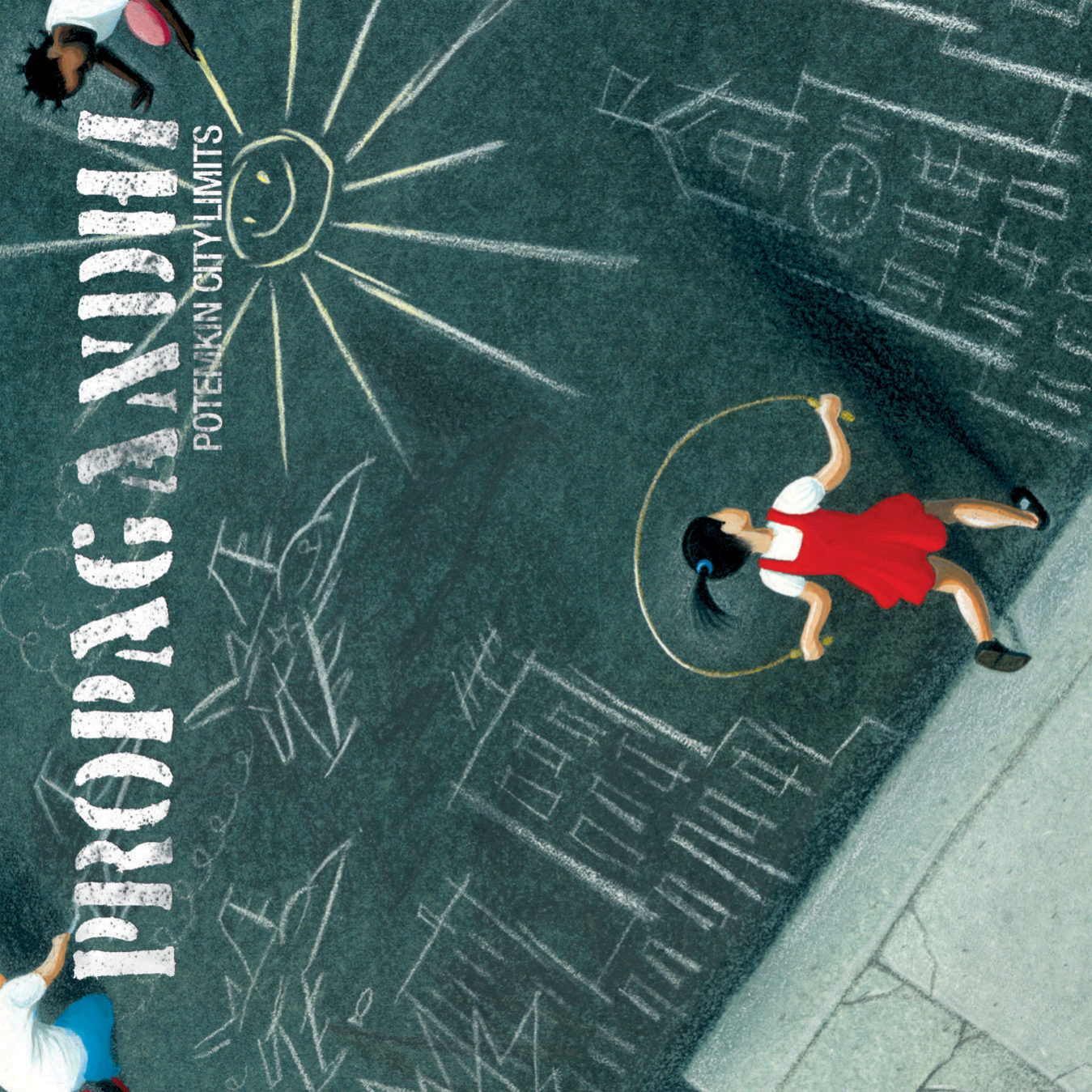Today is Propagandhi Day in Ottawa: “Iteration”

By Matthew Stella
Propagandhi plays Ritual on tonight, August 12th, with RVIVR and War on Women. In the lead-up to the show, longtime fan Matthew Stella reflected on how the band impacted his life by reviewing a different Propagandhi song approximately every day.
Song: “Iteration”
Album: Potemkin City Limits
Released: 2005
First Listen: 2005
“War crimes will be prosecuted.” Laughter. “War criminals will be punished.” More Laughter. “And it will be no defence to say I was just following orders.” Laughter and rousing applause. The opening of “Iteration,” from 2005’s Potemkin City Limits finds Propagandhi at their most cheeky on what is an otherwise bleak album. The speaker is George W. Bush with spliced-in canned laughter from a generic TV sitcom. This was the middle of the second Bush term, and accountability for war criminals and war profiteers was an oft-discussed but rarely acted upon issue. This recording, surely taken from a speech addressing the US military’s treatment of prisoners in Iraq, singles out the individuals on the ground who committed heinous acts of humiliation and torture. Bush mentions that “I was just following orders,” is no longer an acceptable excuse for criminal behaviour (something we’ve heard as far back as Nuremberg). But if these people were just following orders, then who was giving them?
Prior to the release of Potemkin City Limits Propagandhi announced that they had made a change to their lineup. Founder, songwriter, singer and guitar player Chris Hannah was out and Glen Lambert was in. Apparently Lambert had been acquired in a deal with the Portage Terriers, a Junior A hockey team from Chris and Jord’s hometown of Portage la Prairie. Once the album arrived most listeners realized that Glen Lambert sounded a lot like Chris Hannah and photo in liner notes looked an awful lot like him as well. Despite this joke the overall message of tone of the album and its accompanying literature was decidedly less cheeky. The page titled “A Message From Glen” shows Hannah/Lambert sitting on a bare mattress on the floor wearing pajamas with two guns – a handgun and a rifle – beside him. The blurb underneath the photo talks about suicide and frustration with the current state of the world. The album’s content continues in the same vein. It begins with “A Speculative Fiction,” a song that envisions Canada and the United States going to war and sounds weirdly patriotic for a Propagandhi song. By the time you get to the end of the album, through songs about Saskatoon cops driving First Nations people outside of the city limits in the middle of winter and leaving them to die, American military recruitment strategy, and losing faith in the power of music, you are ready for a good laugh, or at least a smile.
The music begins with a single chord that welcomes the star of the song, “Donald wept through the proceedings. His tears soaked through the canvas that cloaked his twisted face and they stained his orange jumpsuit.” The song continues as then Secretary of Defense Donald Rumsfeld is taken to prison and tried for war crimes alongside “shareholders, engineers, PR firms, politicians,” and all the other war profiteers. Because when it comes to assessing the actions of presidents and other high-ranking US government officials you can always throw their own rhetoric back in their faces, and that’s what this song is — the sitting president’s rhetoric applied to his Secretary of Defense.
For all the darkness on this record, “Iteration” is a ray of light. It is hope that the world might come to its senses and cast judgement on the perpetrators of war and not just condemn the actions of “a few bad apples” on the front lines. For all of the violent imagery directed at Rumsfeld, “But how can one man ever repay a debt so appalling? Can’t gouge 10,000 eyes from a single head,” the song isn’t aimed at just one man, the target is a system that allows a Rumsfeld or a Bush to perpetrate these crimes against humanity and then stand in front of a crowd and talk about punishing war criminals. The song pits not just Rumsfeld but all of his billionaire buddies who financed the politicians, pundits and think tanks that led a nation to war against a wounded father whose daughter had been killed. Their punishment is dismantling a landmine while “behind the sandbags, a legless foreman pulls the trigger on a red megaphone. Squelching feedback. Drunken laughter. Broken English. His dead daughter’s picture…” And as the song reaches a crescendo after five furious minutes Hannah/Lambert sings, “Time and tide, no one can anticipate the inevitable waves of change.”
As he repeats, “inevitable waves of change,” you can feel the slight glimmer of hope in this song. That is the tragedy of Propagandhi’s music. They always have the right target — the structural and systemic causes of the problems they address — they just don’t have the power to hit that target when they shoot. There is nothing Hannah can do to bring justice to these criminals except sing his heart out and believe that their comeuppance is inevitable.That is why, at the end of their most grim album they have to resort to the imagined scenario of Donald Rumsfeld being tried for war crimes because, as we have seen, the idea that a change in government would mean the end of American war crimes and justice served to those who perpetrated them remains, like the story of this song, a fantasy.
